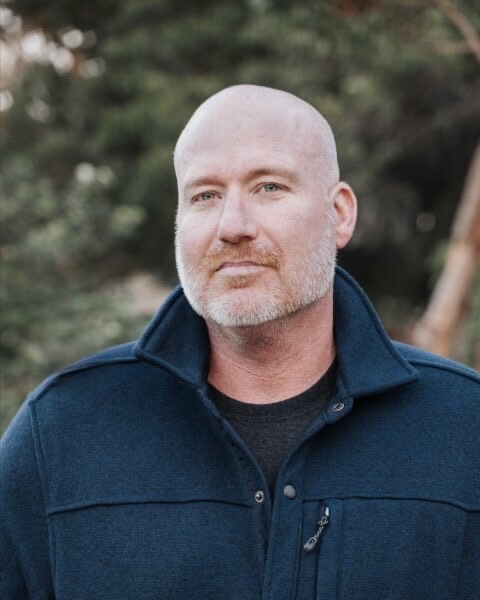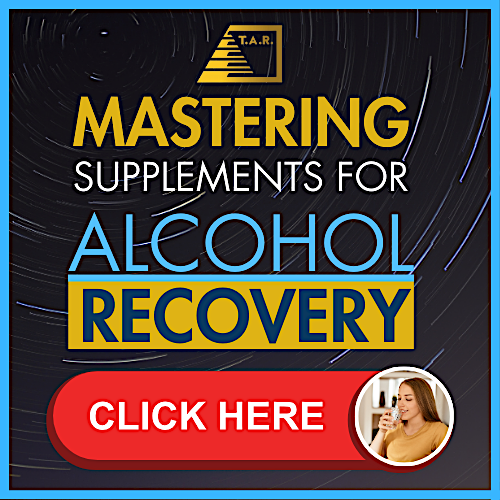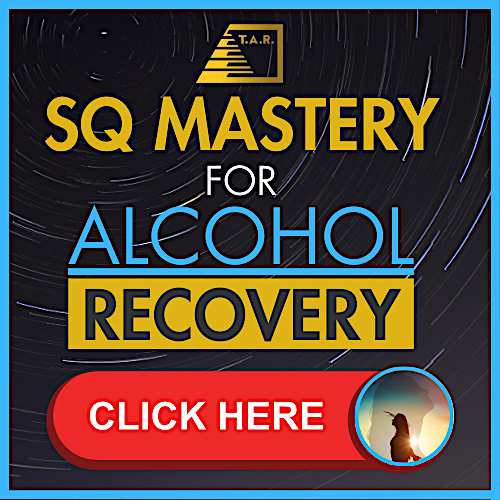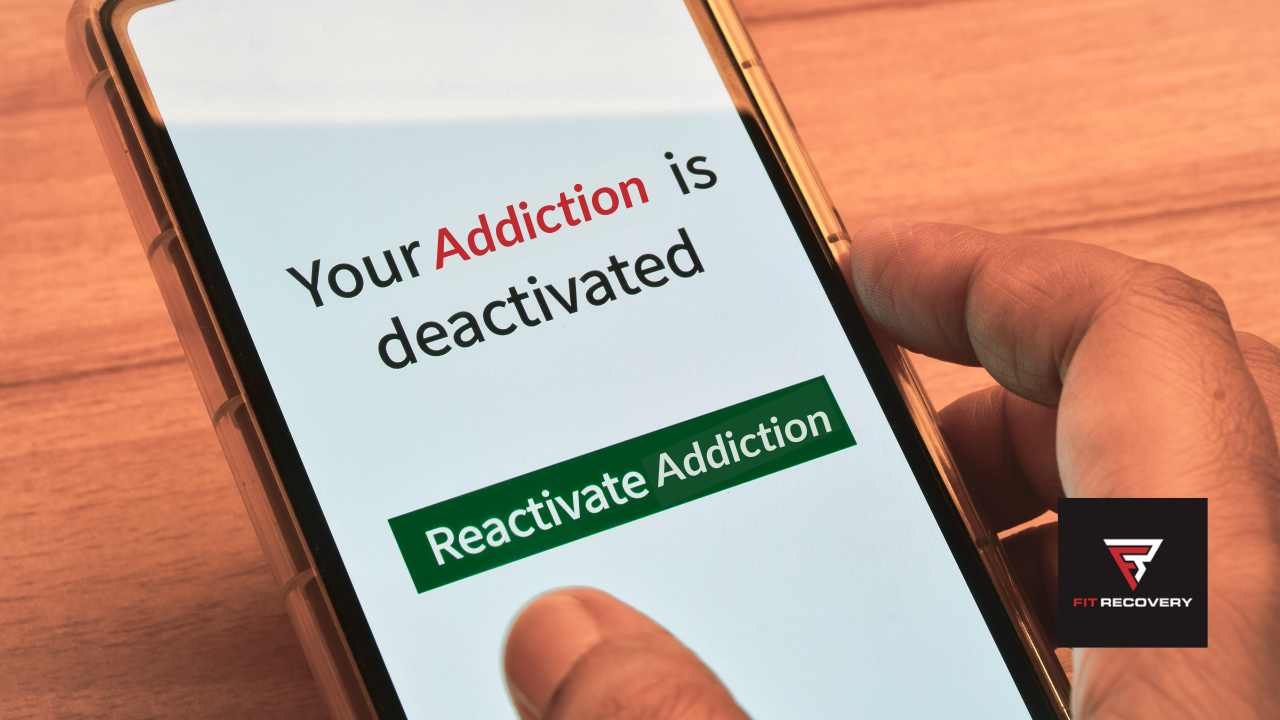
In my experience, without accountability, I could never end my addictions. However, with accountability, I could end my addictions and achieve almost any other goal.
My clients often achieve alcohol-free lifestyle transformations after harnessing the accountability of coaching, whereas previously and without accountability… they achieved only moderate success at best and never sustained it.
While some have managed to stop drinking and even stay alcohol-free long-term without external accountability, for most of us, it’s way too easy to keep drinking and way too hard to quit without this vital asset for recovery.
And statistics show that having accountability significantly boosts success rates in alcohol recovery.
From what I’ve seen, I guess that the correct type of accountability can increase your chances of overcoming alcohol use disorder (AUD) by 800% or more.
In this article, we’ll explore:
- The Concept of Accountability
- The Crucial Role of Accountability for Quitting Alcohol & Overcoming Addiction
- How Accountability is “The Glue that Ties Commitment-to-Results”
- 12 Ways to Activate Accountability to De-activate Alcohol Addiction
- How to Identify the Most Suitable Form of Accountability for Individual Circumstances
- and a Pro-tip for Maximizing Your System of Accountability
Let’s jump into this intriguing topic together!
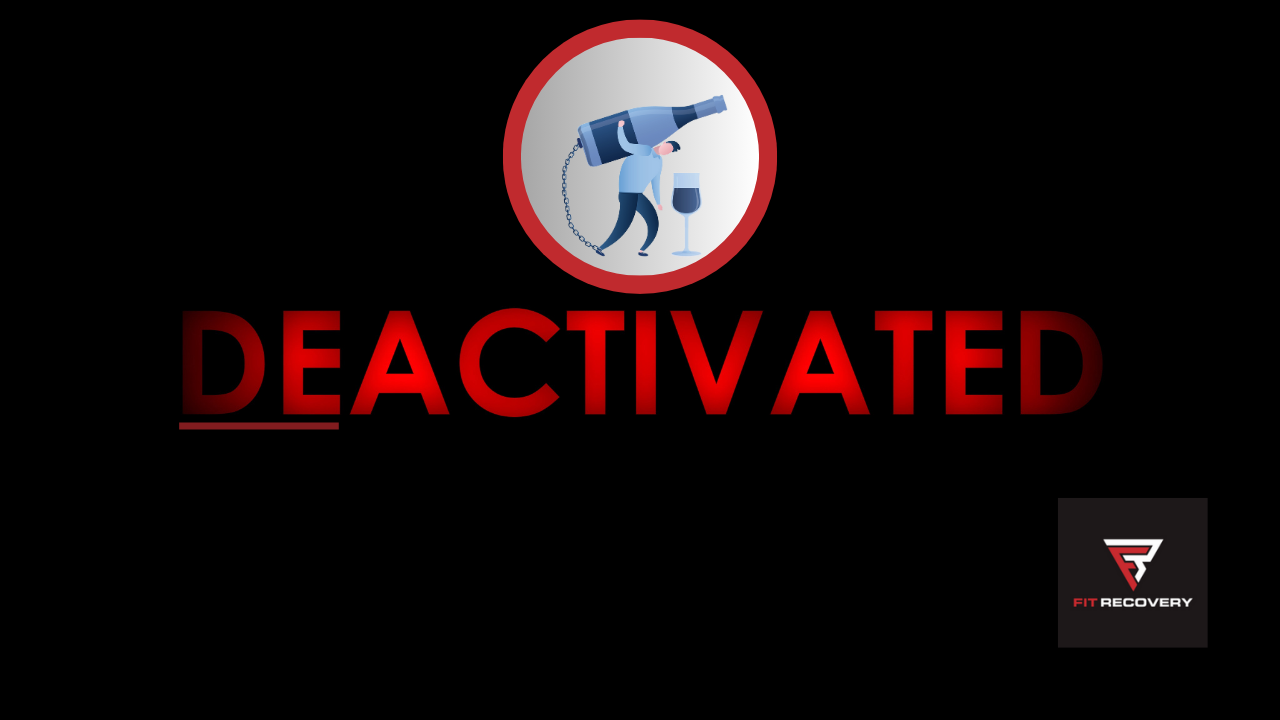
What is Accountability?
Accountability is defined as “the fact or condition of being accountable.” Being accountable means “being answerable for actions or decisions.”
Holding someone accountable involves asking them to explain why they did or did not do something. Employees are accountable, aka responsible, for their actions and inactions at work.
Whenever I worked at jobs where my boss was out of town and no one held me accountable, I tended to slack off and do the least amount of work possible.
However, whenever my boss was present and working with me, I worked hard and did my best.
I had someone to answer to, and I didn’t want to let my boss down or risk losing the job and, thus, the guaranteed and steady income to pay bills with because, without it, I’d become homeless and hungry.
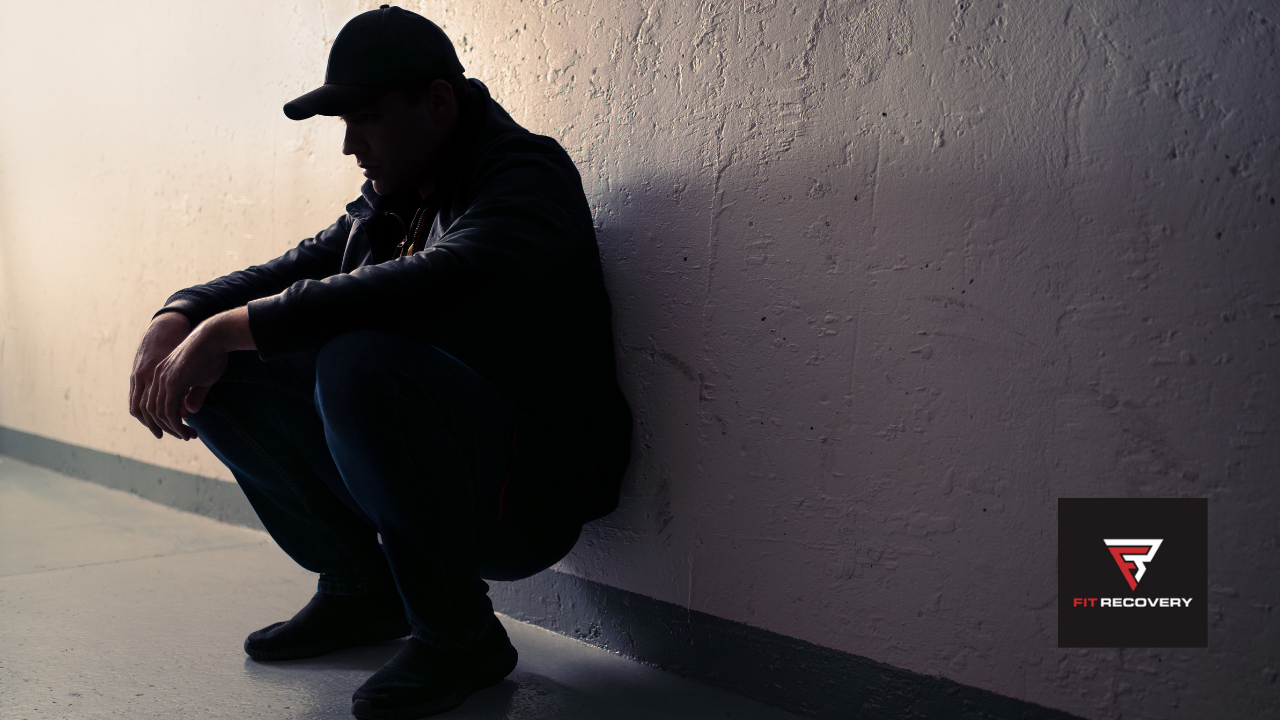
Why is Accountability Important?
Humans are biologically wired to seek comfort and avoid discomfort. We typically choose the most straightforward path in everything we do.
This can make it hard to achieve difficult things.
When we set goals without accountability, we often put them on hold or quit altogether.
It’s easy to stay stuck in life because the pain we know can seem better than the uncertainty of change.
But we can get unstuck and do so fast with the proper accountability system for our needs.
Here are some of the top reasons that being accountable for our actions or inactions can catalyze the changes we want:
- We don’t want to disappoint others.
- We want to maintain our reputation.
- We want to be known as dependable.
- We want to avoid appearing unreliable.
- We want to avoid feelings of guilt and shame.
- We want our actions to align with our decisions.
- We want to feel congruent and have integrity.
As you might gather from the list of reasons above, accountability is a crucial factor in combating alcohol addiction and is constantly the missing piece that ensures success.
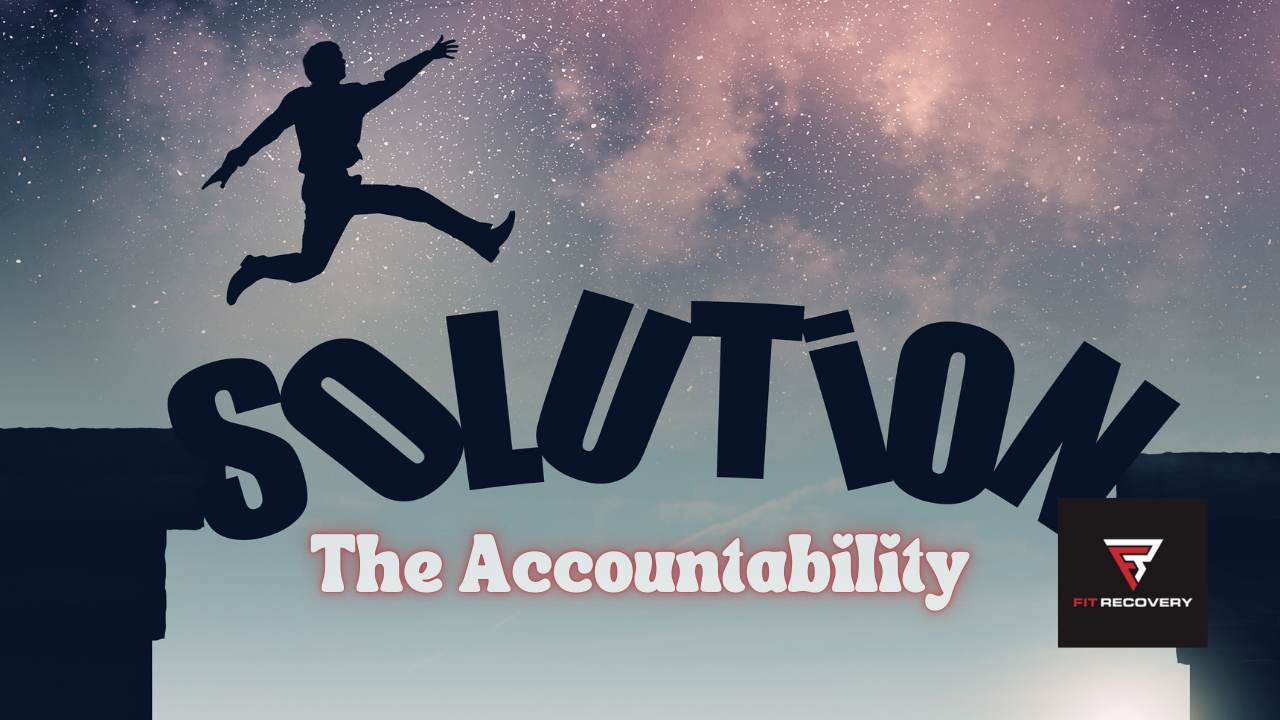
My Story of Accountability
For years, I kept my addiction a secret. My parents, friends, and even my live-in girlfriend were unaware of it. As a result, every time I attempted to quit, I would either fail or succeed briefly, only to relapse weeks or months later.
It was too tempting to continue because no one knew, and I had no one to hold me accountable or keep me on track to stay sober.
All of this changed over 12 years ago.
At that time, I was single, unemployed, and had moved back in with my parents.
They supported and held me accountable throughout each day as I detoxed from alcohol, opioids, and benzos.
Without my parents’ knowledge and their support to keep me accountable and responsible for quitting, I’m confident that healing would have been nearly impossible for me.
12 Ways to Activate Accountability to De-activate Alcohol Addiction
There are numerous ways to establish accountability. The key is to find the method that works best for you.
Since everyone is unique, what may be effective for one person may not work for everyone.
Here are some examples of accountability options to consider:
- Ask your spouse to hold you accountable.
- Enroll in an inpatient treatment program where doctors and counselors can hold you accountable.
- Hire a recovery coach, addiction therapist, or counselor to assist you in developing a plan to quit and hold you accountable.
- Request your doctor or psychiatrist to hold you accountable.
- Ask a trusted loved one to be your confidant and hold you accountable for alcohol recovery.
- Attend a mutual aid group like Alcoholics Anonymous (AA) or SMART Recovery, and seek accountability from the group.
- Find someone to sponsor you at AA and have them hold you accountable.
- Ask your church pastor to hold you accountable.
- Join an online recovery community and seek accountability from its members.
- Make a public social media post declaring your plan to quit alcohol and the date you intend to do it.
- Find another individual who wants to quit alcohol and become accountability partners.
- Invite your parents or children to hold you accountable.
In addition to this extensive list, numerous other effective ways exist to establish robust accountability.
Accountability Exercise: Take a moment to jot down the accountability methods from the list that resonate most with you. Then, brainstorm additional methods of accountability that are not included in the list but that you believe would be valuable. Afterward, articulate in a paragraph why these methods would significantly aid you. Make a firm commitment to implement these accountability methods, and revel in knowing that you’ve substantially enhanced your prospects for success.

Pro-Tip to Optimize Your Accountability
The most potent form of accountability occurs when you deeply respect the person or people holding you accountable for stopping drinking.
When you feel enormously disappointed in letting these individuals down, it engenders a high level of accountability that will propel you to follow through.
As mentioned earlier, individuals often engage in my coaching services because they recognize that I can assist them in creating a comprehensive plan for alcohol detox and recovery, and they are committed to not letting me down.
They made a substantial financial investment to begin coaching with me.
This combination, along with their strong sense of accountability to me and the coaching skills I bring to the table, often leads to success.
However, as stated, everyone is unique.
Coaching may not be the optimal form of accountability for everyone. It is essential to dedicate ample time to contemplate this matter.
By establishing the right type or multiple types of accountability, you will gain the ultimate edge and drastically improve your chances of quitting alcohol for good.
10X Your Accountability with Fit Recovery 2.0
Joining as a Fit Recovery 2.0 Member is a powerful method to create accountability. You can share your goal to quit drinking in a post with over 700 other members and receive a wealth of accountability.
I will provide guidance, track your progress in the program, and hold you accountable every step of the way.
“Accountability is the glue that ties commitment to results.”
— Bob Proctor

6 Key Concepts of Accountability for Alcohol Recovery
Now that you’ve discovered why activating accountability deactivates addiction let’s discuss the key concepts so you can discern the fundamentals for adding this essential recovery asset to your life.
Here are the primary concepts that you should know and implement:
- Being accountable means “being answerable for actions or decisions.”
- Humans seek comfort and avoid discomfort, often opting for the easiest path. This makes achieving difficult things challenging. Setting goals without accountability usually leads to postponement or quitting.
- Accountability can significantly increase one’s chances of alcohol recovery by tapping into powerful innate human drives, such as the desire to avoid letting others down and to ensure one’s actions align with one’s decisions.
- Popular forms of accountability for alcohol recovery include self-help groups like AA and SMART Recovery, inpatient and outpatient treatment programs, working with a recovery coach or addiction medicine physician, joining an online recovery community, utilizing an accountability partner, and becoming a Fit Recovery 2.0 Member.
- Everyone is unique, so what works for one person may not work for everyone. It’s essential to find the method that works best for you.
- Respect for the person or people holding you accountable creates a high level of accountability that drives you to follow through.
Accountability: The Numer One Strategy for Alcohol Recovery?
If you liked this information, you’ll love my video on The Number ONE Alcohol Recovery Strategy! PLUS Many More Tips To Stop Drinking Poison.
It will continue your learning how to optimize accountability and introduce you to other important concepts for early alcohol recovery, such as the Stages of Change Model and my framework, which I call the Phases of Alcohol Recovery.
Take good care of yourself, and I hope I get the opportunity and privilege to be your recovery coach, either in our weekly live group coaching program or my one-on-one coaching if either resonates with you and is a good match.
To close, here are some famous quotes about accountability for you to meditate on:
- “The moment you take responsibility for everything in your life is the moment you can change everything in your life.” — Hal Elrod.
- “You need accountability to stick to a major goal. It’s not enough to make a personal commitment.” — S.J. Scott.
- “He that is good for making excuses is seldom good for anything else.” — Benjamin Franklin.
- “Be accountable for doing the right things. This means the ethical execution of the activities that will actually support the goals you have chosen for yourself.” — Sam Silverstein.
- “Accountability breeds response-ability.” — Stephen R. Covey.
“Accountability de-activates alcohol addiction.”
— Matt Finch

“Accountability de-activates alcohol addiction.”
— Matt Finch
Author
-
Matt Finch, the Fit Recovery Head Coach, embodies the power of transformation. With over 13 years of freedom from both alcohol and opioids, he has turned his personal journey into a beacon of hope for others. Previously a Certified Substance Abuse Counselor at an outpatient treatment center, he has dedicated his life to empowering individuals to break free from the chains of addiction. Through his innovative recovery coaching programs, he has joined forces with Chris Scott and Fit Recovery, inspiring thousands to overcome their struggles. By offering one-on-one recovery coaching, engaging group sessions, and dynamic online courses, along with his uplifting podcast, "The Matt Finch Show: Fit Recovery 2.0 Members-Only Alcohol-Free Lifestyle Podcast," he illuminates a path to a healthier, addiction-free lifestyle.
View all posts Fit Recovery Head Coach


